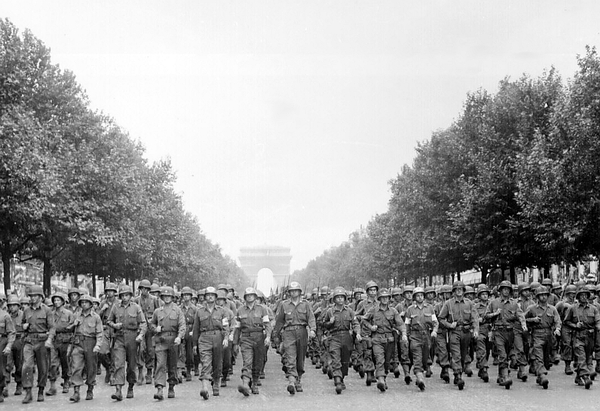THE WORLD’S #1 EXECUTIVE COACHING AND BUSINESS COACHING BLOG SINCE 2017.
The Relationship Between Power and Authority in Leadership
September 23, 2024 | Category: Blog, Intelligent Leadership | Last updated on: March 12, 2025
Many leadership development programs discuss the careful balancing act often required of leaders. Leaders have power, but they also have responsibilities.

Leadership is, in many ways, a balancing act.
Leaders also have authority, which is both something designated by those higher up and a personal quality based on influence and personal relationships. How they use power and authority has a great bearing on their success as leaders. I have worked with leadership coaching clients who confuse power and authority and, as a result, lead less effectively.
Understanding the differences between the two is not just beneficial, it’s crucial. It can help leaders understand their roles and responsibilities more clearly, making them feel more informed and knowledgeable.
Understanding the differences between power and authority is not just beneficial but crucial for effective leadership. Here are the key takeaways:
- Authority is not just about holding a formal position. It’s about how the team perceives a leader’s influence.
- The relationship between power and authority defines how effectively a leader can guide and influence their organization.
- While power involves exerting control, authority is built on personal relationships and earned respect, helping leaders foster a trusting environment.
- A leader who understands the power and authority relationship can balance influence with responsibility, ensuring they lead with purpose and integrity.
Authority in Leadership
Authority in leadership is not just important, but essential for creating a positive and productive work environment. Unlike power, which often relies on control or coercion, authority is rooted in a leader’s influence, respect, and formal position.
Authority is the foundation of effective leadership, allowing leaders to guide their teams without relying solely on force. In any leadership role, the ability to inspire action through trust and integrity sets great leaders apart.
Authority in leadership is crucial because it encourages voluntary action, where team members feel compelled to follow due to respect for the leader’s competence and vision rather than fear of consequences.
A leader’s authority comes from their formal role and ability to foster personal relationships with their team. This combination allows leaders to use their authority naturally and organically, building a sense of loyalty and commitment among employees. The relationship between power and leadership is important, but authority should always be a leader’s primary tool to influence others.
How Power and Authority Differ
In a strictly physical sense, power is a rate of transferring energy over a set period, like the electrical power you use to make your computer work. In human relationships, it is an ability to force someone to do what you want, even if they don’t want to, because of your (real or perceived) might. Power can get things done, as any historical account of warfare will attest. It is necessary for leadership roles but must be used judiciously and not abused. The potential for misuse of power is a cautionary note for all leaders.
On the other hand, authority is more analogous to the electrical cables that get the power to your office. Those cables are “authorized” to bring power to your home for you to use as you see fit. Regarding leadership, authority is the glue that holds together the many promises of leadership. It has several key attributes:
- It is decisive
- It is accomplishment-oriented
- It is influential
- It is courageous
- It inspires
Leaders who truly understand power and authority are better equipped and empowered to inspire voluntary commitment.
Power forces compliance, but authority motivates individuals to take ownership of their work because they trust and respect their leader. This distinction is critical when considering whether a leader should focus on power or authority.
The Importance of Personal Relationships and Formal Positions
Authority is not just about holding a formal position but also about the personal relationships a leader builds. The greatest leaders know how to blend the formal power of their role with the influence they cultivate through trust and integrity. This balance allows leaders to create a lasting impact, as their team members will feel connected to the leader’s vision and values.
Leaders who focus solely on their formal position may wield power without the support of their team, leading to disengagement and lackluster results. However, leaders who invest in building strong relationships with their employees foster a sense of shared purpose. These leaders don’t need to rely on power.
Their authority is established through mutual respect and the influence they’ve built over time. This combination of formal authority and personal influence is essential for long-term success, as it strengthens relationships and inspires teams to excel beyond basic expectations.
Charismatic, Traditional, and Rational-Legal Authority
In leadership, various forms of authority dictate how leaders influence their followers. These can shape leadership styles and determine how effectively leaders wield their influence. The three main types of authority are:
- Charismatic authority
- Traditional authority
- Rational-legal authority
They each offer a unique way for leaders to inspire and guide others. Understanding these distinctions is crucial in analyzing how authority functions across political, organizational, and historical contexts.
1. Charismatic Authority
Charismatic authority stems from a leader’s personal charm, energy, and ability to inspire through personality rather than formal power. This type of authority doesn’t depend on a formal position but rather on a leader’s emotional appeal to their followers. Charismatic leaders are often visionaries, able to mobilize their teams through sheer enthusiasm and inspiration. Their influence is deeply personal, creating a strong sense of loyalty and devotion from their followers.
2. Traditional Authority
Traditional authority derives its legitimacy from long-established customs, traditions, or practices. This type of authority is seen in monarchies, religious institutions, and familial leadership structures, where authority is passed down through generations. In such systems, people follow leaders because it has always been done that way, and questioning this type of authority is often taboo.
3. Rational-Legal Authority
Rational-legal authority is based on established laws, rules, and formalized systems that dictate who holds authority and how it is exercised. This type of authority is prevalent in modern political systems and corporate environments, where leadership is not inherited or based on personal appeal but on the individual’s competence, procedures, and merit. In the United States political system, for example, leaders are elected or appointed based on formal rules that define their roles and powers.
Power Versus Authority: When and How to Use Each
Leaders Need Both Power and Authority
Power is simple and basic. It is often more effective in the short term. In World War II, for example, the Allies could liberate Paris by forcing the Germans out. Sometimes, power is necessary and right. For example, most of us would use our physical power to pull a child out of the path of an oncoming car.
There’s no question that sometimes the exercise of power is necessary.
Authority is also necessary for leadership. Because of their decisiveness, accomplished track record, influence, courage, and inspiration, great leaders can help their teams accomplish great things. Great leaders may have power but are more likely to hold it in reserve and rely on authority to lead.
However, outstanding leaders know when circumstances necessitate the use of power. Such a leader, for example, won’t hesitate to fire someone for egregious misbehavior.
Excellent Leadership Qualities Reduce Need for Use of Sheer Power
Strong leadership development programs help leaders develop qualities that minimize their need for sheer power to get things done. They help emerging leaders develop qualities that inspire others to do the right thing, work hard, and engage with their tasks.
Authority is ultimately a more efficient and effective manifestation of leadership than raw power.
Leaders who rely too heavily on power to accomplish tasks often strain relationships and drive good people away, weakening their long-term influence.
Visionary Leadership Style and the Use of Power
Visionary leaders often demonstrate the most effective use of power and authority. They understand when to wield power to achieve transformation but primarily use authority to maintain respect and influence over the long term.
A visionary leadership style involves inspiring others with a clear vision for the future, but it also requires knowing when to apply power strategically to overcome obstacles.
The authority that follows strong leadership qualities strengthens relationships and helps team members develop the confidence to do their work better.
Earned leadership can be wonderful. Unfortunately, there will always be leaders who abuse their position to gain power, and while they may make things happen in the short term, they lose out over the long term.
Leadership development programs that teach leaders the qualities of meaningful authority will likely produce leaders who recognize the value of accomplishments, inspiration, example, and other effective leadership skills.
These leaders, who recognize when power must be used and when it should be held in reserve, are the ones who stand to accomplish the most over the long term.
The Pitfalls of Power Without Authority
Relying solely on power without building authority can lead to severe consequences:
- Leaders who rely on exerting control through an autocratic leadership style often face resistance from their teams.
- Unchecked power damages relationships and erodes trust, resulting in disengagement and decreased performance over time.
- Without authority built on respect and personal relationships, power becomes a temporary solution, leading to long-term failure.
History provides many examples of leaders who failed because they relied too heavily on power. In many political systems, leaders who depended on sheer force rather than cultivating authority ultimately lost their influence.
The Concept of Absolute Power and “Absolute Power Corrupts Absolutely”
The famous phrase “absolute power corrupts absolutely” highlights the dangers of unchecked power. When leaders wield absolute power without accountability or authority grounded in ethical behavior, they are likely to make unethical decisions that can lead to their downfall.
Political scientists focus on how the concentration of power can lead to corruption and the collapse of leadership. Leaders who rely on power alone often make decisions that benefit themselves rather than their teams or organization, and they eventually fail their leadership.
Authority as the Key to Sustainable Leadership
Authority is the cornerstone of sustainable leadership. Unlike raw power, which can produce quick results but often at the cost of long-term stability, authority is built on trust, influence, and ethical behavior.
Leaders who focus on developing their authority will likely inspire loyalty, foster collaboration, and create a positive work environment.
Authority stems from respect and credibility, making it a more effective tool for driving lasting change than power alone. The relationship between power and leadership demonstrates that while power may be necessary in certain situations, authority sustains a leader’s influence over time.
Consultative Leadership Style and Its Emphasis on Authority
The consultative leadership style emphasizes authority over power by prioritizing collaboration and gaining the team’s trust.
Leaders who adopt this style foster open communication and input, allowing them to build strong relationships with their teams and achieve sustainable results through cooperation rather than force.
Conclusion
The balance between power and authority is essential for long-term leadership success. While power can achieve short-term goals, authority—rooted in trust, influence, and ethical behavior—ensures sustainable leadership.
Leaders who rely solely on power risk damaging relationships and losing credibility, while those who build authority inspire loyalty and foster collaboration.
Leadership development programs such as Intelligent leadership executive coaching help leaders cultivate the skills to establish authority, emphasizing emotional intelligence and strong personal relationships.
Ultimately, leaders must master power and authority to navigate today’s complex organizational environments effectively, strategically using each tool to inspire and drive lasting change.





